
“People told me England was beautiful,” Adel says, perched on the edge on his sofa in Greater Manchester. “I came here to learn. I wanted to improve myself and to find a better life for my family.”
Following years of war, Adel, a Sunni Kurd, fled his home in Idlib, northwestern Syria, to Saudi Arabia. While living and working there as a surgeon, he claimed asylum in the UK and moved there in December 2012. He was later joined by his wife, Haifaa, and their three sons.
Today, Adel's family live on a quiet street on the outskirts of Manchester. The North West of England has taken more refugees than any other part of the UK – at the most recent count, 7,407 refugees have been given a roof over their heads in cities across the region over the last 10 years. It has also taken more Syrians than any other region: There are now 272 Syrian refugees in the area, 226 more than there were 10 years ago.
With Europe's biggest migration crisis since the second world war showing no sign of abating over the winter, Britain has been widely criticised for failing to take in enough refugees. On Tuesday, a group of 100 Syrians are due to land in Glasgow, the largest since David Cameron announced in the wake of the death of 3-year-old refugee Aylan Kurdi that the UK's resettlement scheme would be expanded to take in 20,000 over five years.
There are also people trying to get to the UK after fleeing conflict in Iraq, Afghanistan, and sub-Saharan Africa.
But what is life like for those who have already made it to Britain? And will the Paris terror attacks harden the mood against those coming here? BuzzFeed News spoke to two families about their experience of resettling in the UK, their journey here – and what they left behind.
Despite Adel's high expectations, the transition from Syria to Manchester was difficult. Finding employment – even for someone with professional qualifications – hasn’t been an easy task, and he is currently working towards getting his doctor’s qualifications renewed in the UK.
“I am a surgeon,” he says. “I worked as a surgeon for more than 23 years. I remember the feeling when a patient comes to you with severe pain and you can relieve it. I felt successful and I felt proud that I helped people. I need to work, I can’t just sit at home and do nothing. But I have lost my talent and experience of working with my hands. I am a 50-year-old man with pride who wants to use his talent.”

As he waits for his qualifications, he’s living on benefits, and if he misses an appointment at the jobcentre, his benefits will be cut. As a refugee, Adel was also unable to go to Syria to see his father before he died.
“My father called me and begged: ‘My son, when are you coming to Syria to see me?’" he says. "My parents spent all their money to make me a doctor, and after all of that, the jobcentre tells me that maybe I can work as a cleaner.”
Three hundred and twenty thousand refugees have already crossed the Mediterranean this year towards western Europe. None of those embarking on the risky journey can be sure where they will receive asylum – or if they will receive asylum at all.
At home in Syria, Haifaa and Adel lived in a “good home" where they "cooked and danced and swam together", before their house and neighbourhood were destroyed. The couple sometimes speak to family members in Syria who are still alive.


Adel and Haifaa's house in Idlib, Syria, in April 2011 (left) and March 2014 (right).
“I lost maybe more than 10 cousins,” says Haifaa, who now has siblings scattered across numerous countries in Europe and the Middle East. “Now I forget how many are gone. I don’t know how many are dead.”
“I want to tell you a story," says Adel. "I was speaking with my 5-year-old nieces on the phone. I ask them: ‘What would you like me to bring when I come back to Syria?’ They say: ‘Uncle, we need some meat and bananas.’ It was really very sad, because Syrian children have forgotten about the shape and the colour of fruits in my country.”
On the other side of Manchester lives Ban, a Shia Iraqi refugee who came to the UK in 2014. With the support of the refugee resettlement charity Refugee Action, she lives in the city with her elderly mother and two daughters, Zeynab, 10, and Zahra, 17. When the Saddam Hussein regime fell and war broke out, Ban’s job at a political charity for women put her life at risk.
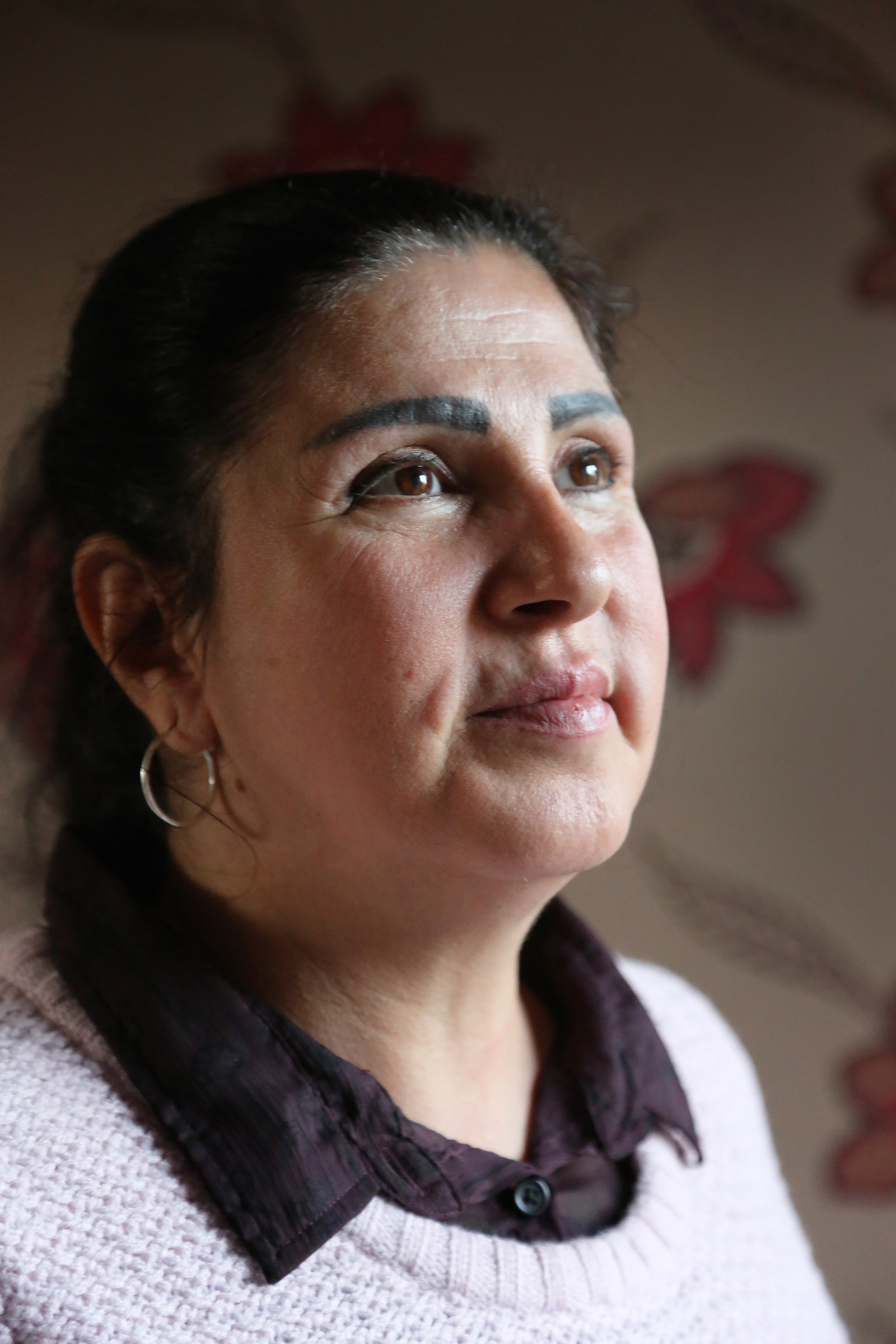
“I was working for a charity for women who needed help,” she says. “There are many problems for women in Iraq, and nobody wants to acknowledge them and help them. But as it was a political charity, I did not feel safe there. I wanted to leave before something happened to me or my daughters.”
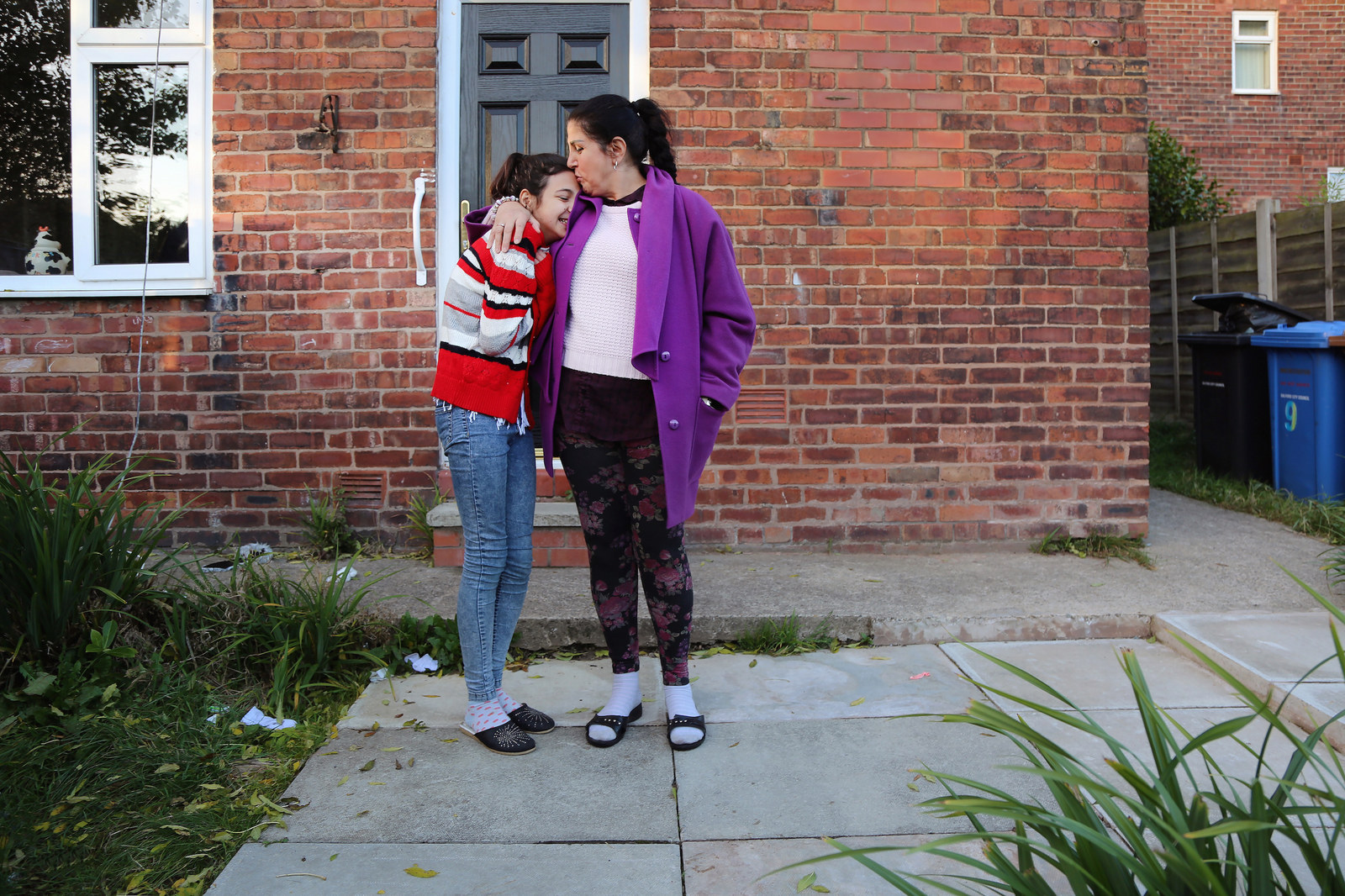
After Ban escaped an abusive marriage and the Iraqi conflict, she found refuge in Syria – but after two years she was forced to flee again when conflict worsened there too. She had applied for refugee status after fleeing Iraq in 2010, and was finally relocated to the UK four and a half years later.
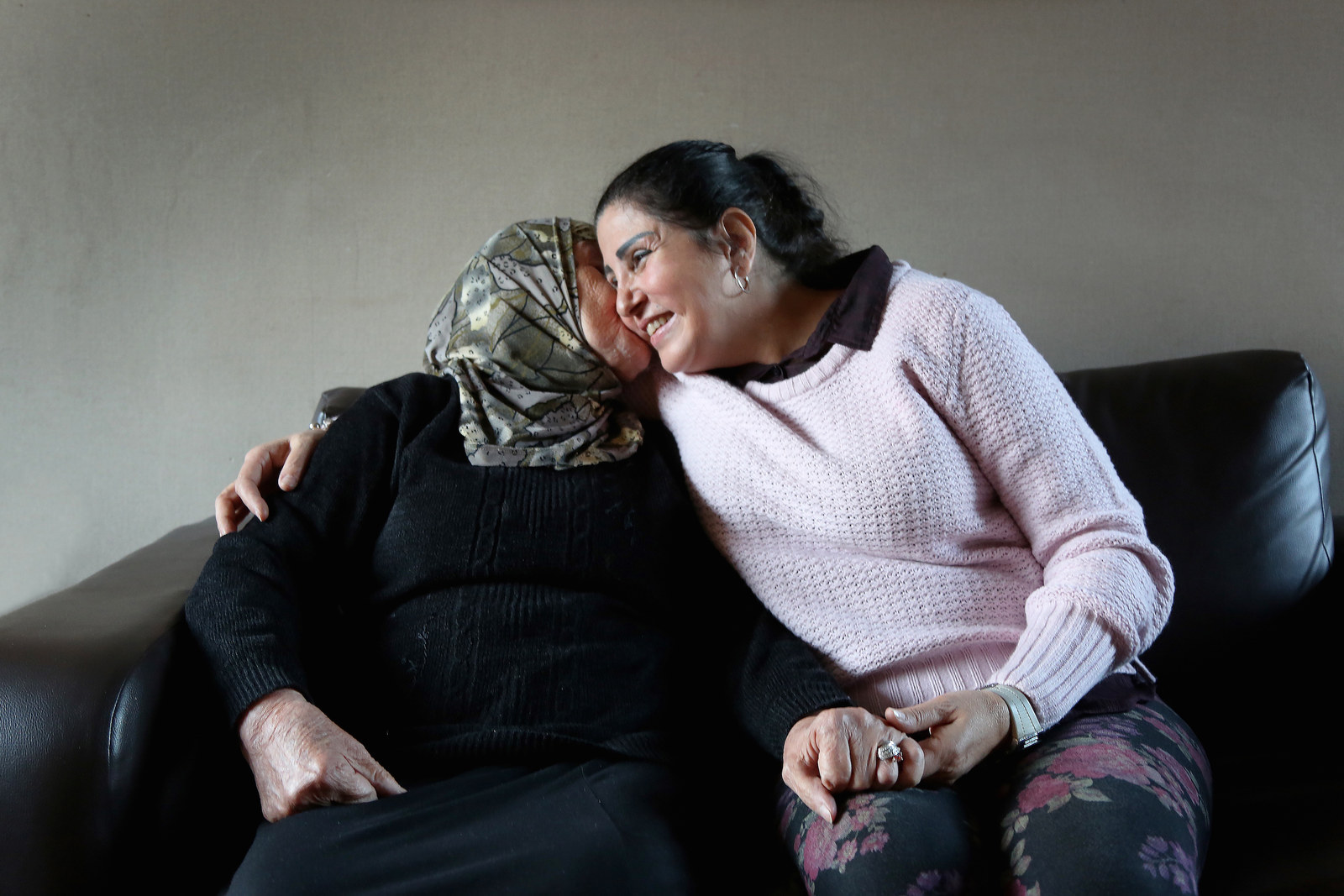
“Syria became dangerous," she tells BuzzFeed News. "Every time there was a bomb explosion or attack I rushed to see if my daughters were alive. In the end I had to stop my children from going to school, and we all just stayed at home.
"When we left Syria, we stayed in a room in a camp in Romania with 13 other people – there was a lot of trouble for women and girls there, my daughters remember. After, we left Romania through to Bucharest and Macedonia. It was a long journey, but we got to Manchester at last.”
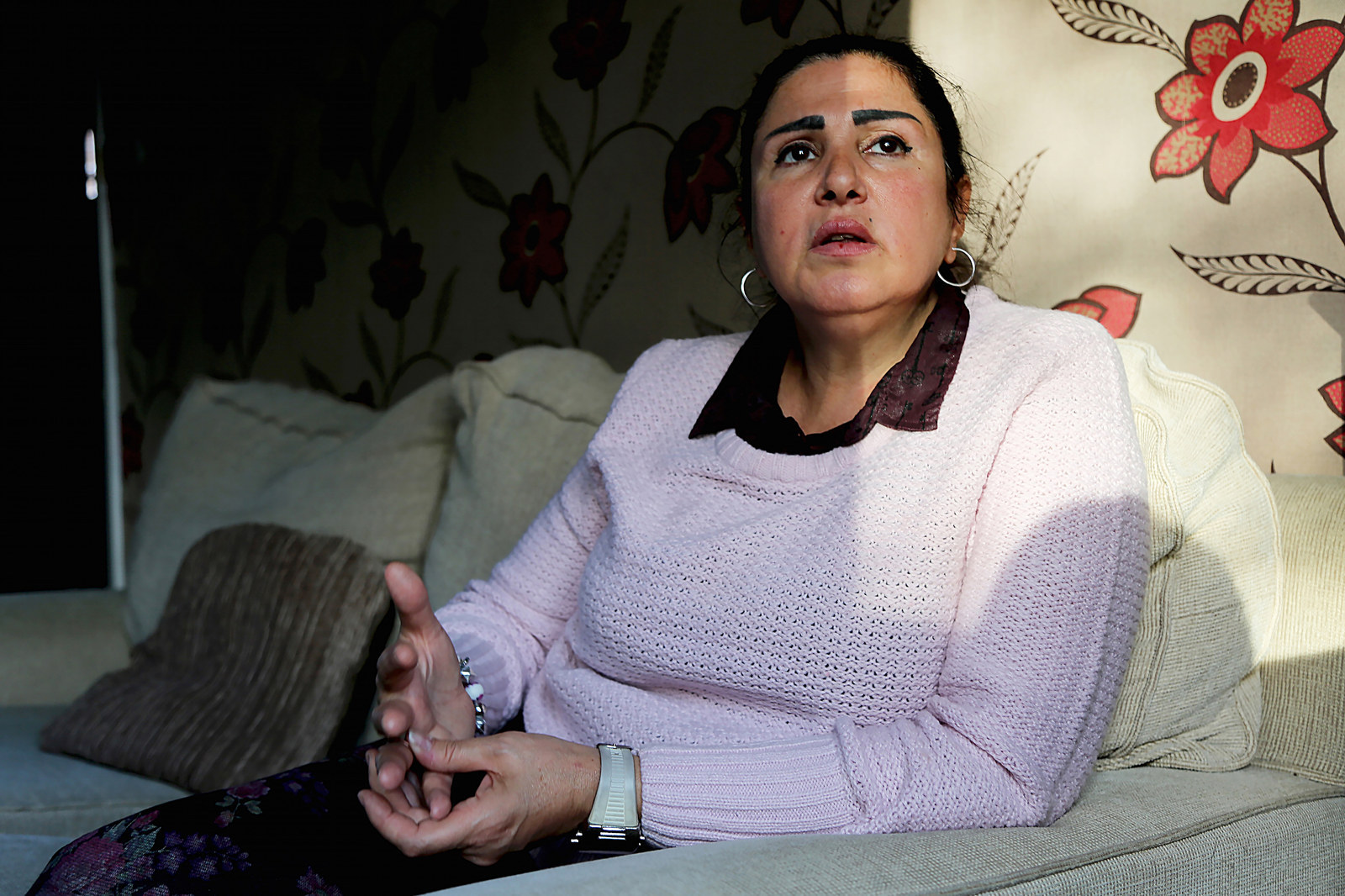
Ban worries about her family. Her sisters are still in Iraq, and face danger in a region where conflict and the rise of ISIS have left more than 3.6 million internally displaced Iraqis across central Iraq and the Kurdistan region. Around 470,000 refugees and asylum-seekers have originated from Iraq in recent years, according to the UN.
“My sisters are still in Iraq," she says. "I am really worried about them because the situation is desperate. They have been threatened and mugged on the street. I hope and I want my sisters to come here but I have no choice because I am a refugee – I cannot bring them here.”
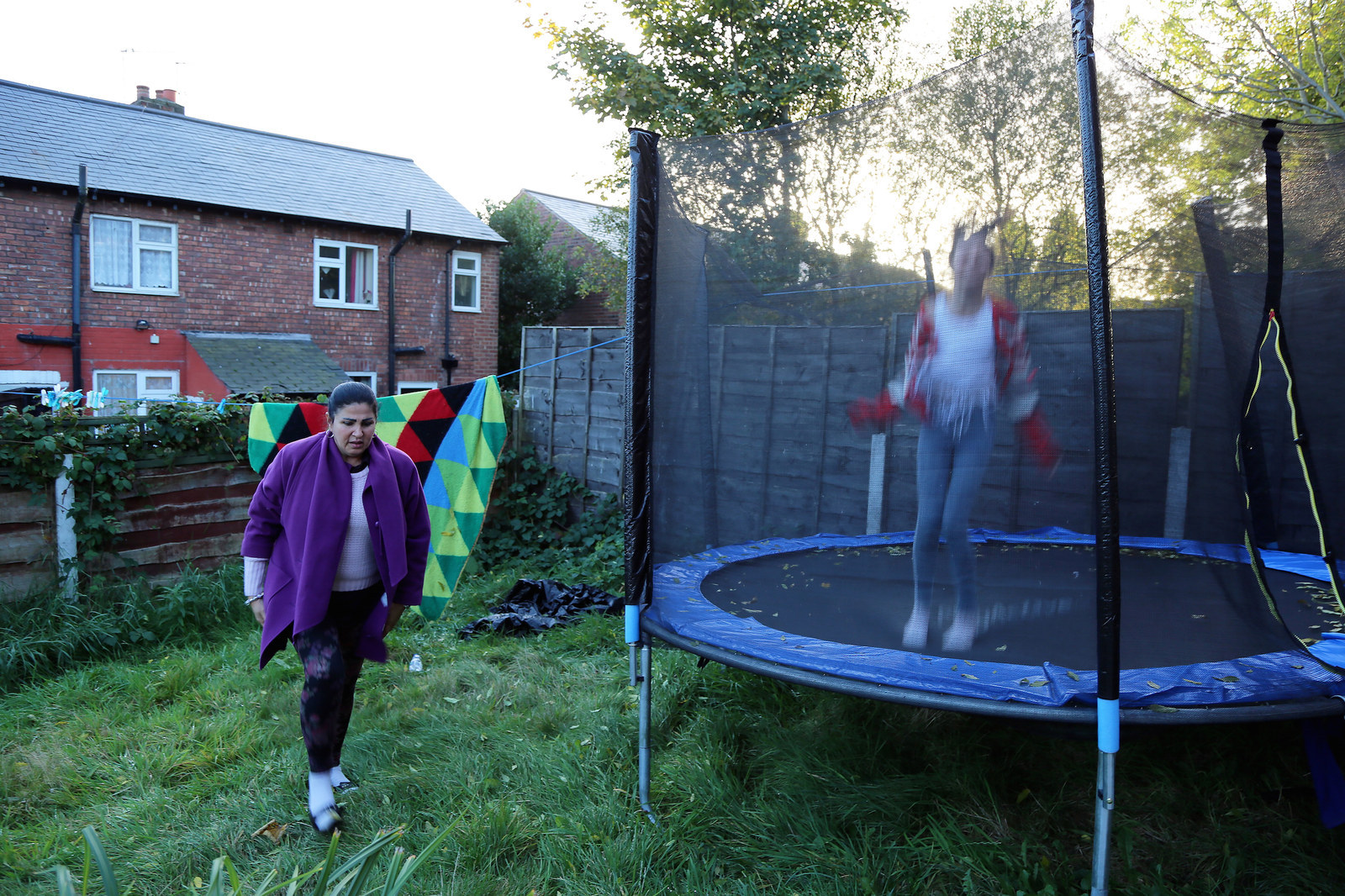
Ban and her family are grateful for what they have and remain hopeful for their future.
“I often think how we are really lucky when I read the newspaper or the news and I see people who are still suffering in Iraq and Syria," she says. "I don’t know what advice I can give to them, I just hope they can escape one day. Even though many bad things have happened in my life, and times have been very hard, I still try to stay positive.”
But in the wake of the Paris terror attacks, she is afraid there will be a backlash. "I am really worried, but I am hoping that what is happening is not going to stop refugees coming to the UK," she says. "We are different. We are not terrorists. We came here because we need help. We left our jobs and homes to find safety. We risked our lives to come here. These men were very bad but they are not us. We are good people.
"Only yesterday, Haifa was over and she was crying because she thinks the refugees will be blamed for that what happened in Paris. It is really very sad and hard right now.”
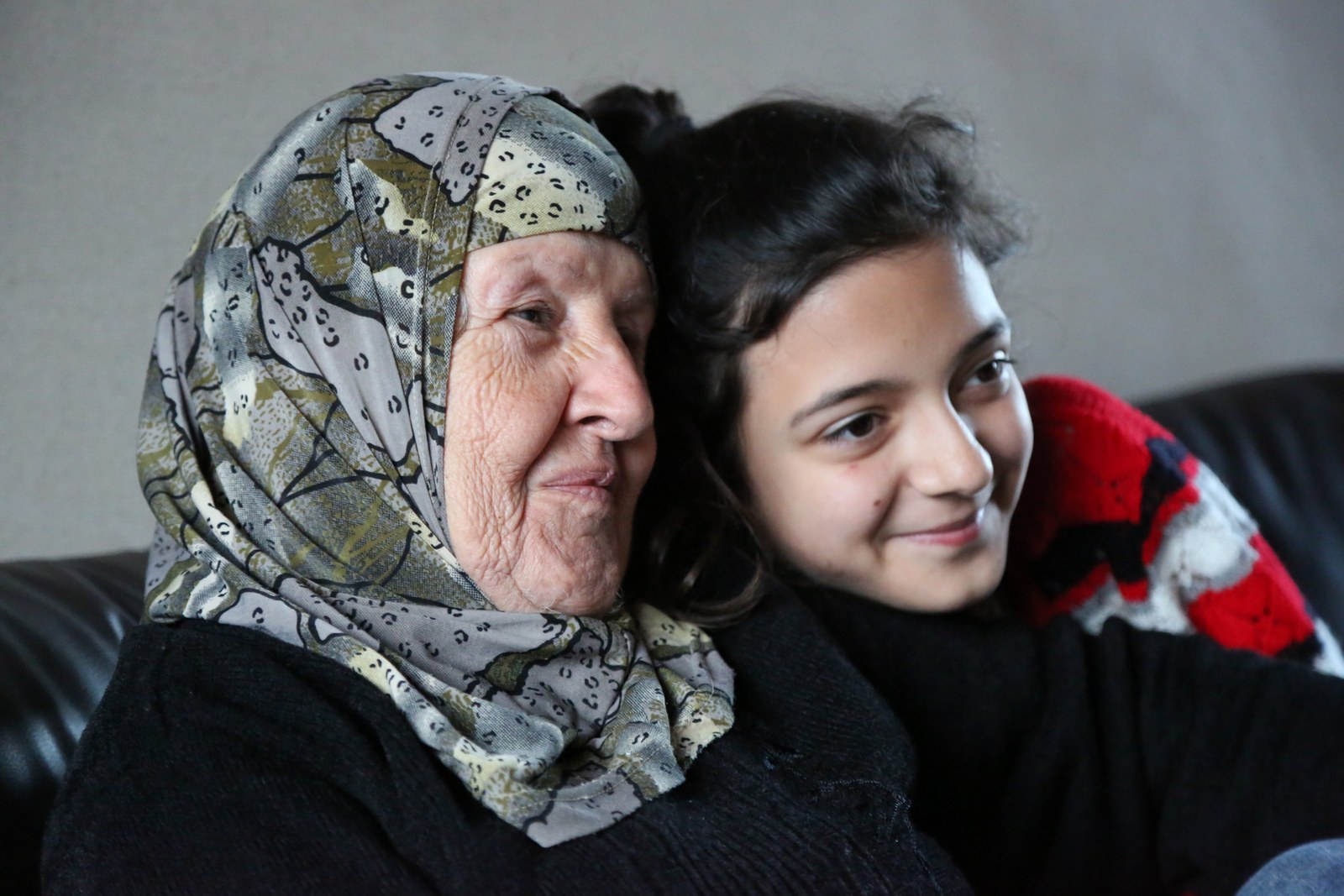
As Ban, Adel, and their families settle into their new homes, they are worlds away from their former lives in Iraq and Syria. Relocating and adjusting to a new way of life while attempting to pursue the careers and dreams for the future they once had has proved challenging at times.
But fully merging into a British way of life may prove easier for their children.
“If someone asks me where I am from,” Ban says, "I will say I am Iraqi, as I grew up in Iraq and all my memories are there, both the good and the bad. But for my daughter, Zeynab, she –”
“I will say I am British,” Zeynab interrupts, in her strong Mancunian accent. “I am British.”
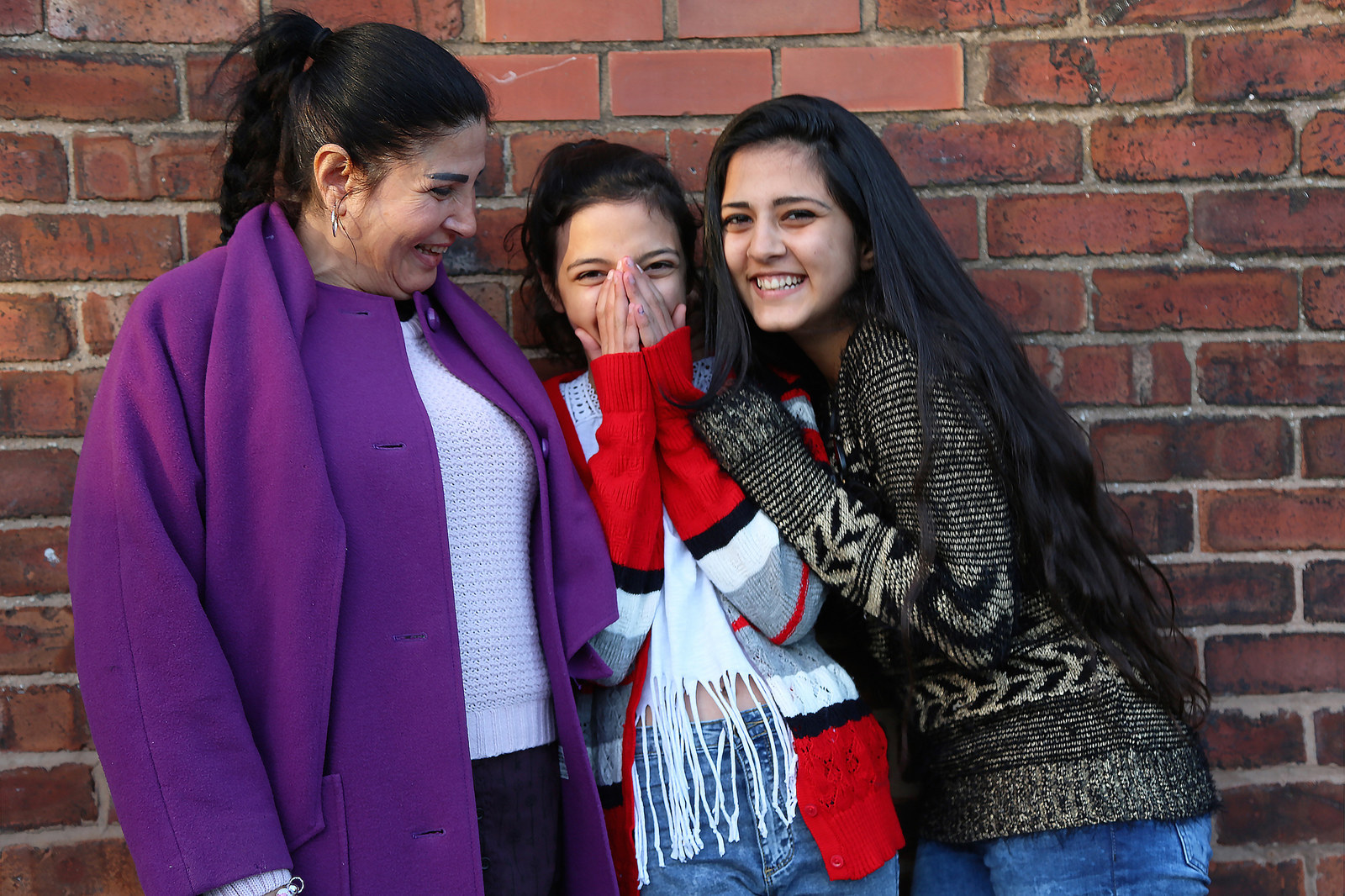
UPDATE
This post has been updated to clarify that having to sign on for jobseeker's allowance is not what prevented Adel from returning to Syria to see his father – as a refugee, he cannot return to Syria anyway.
